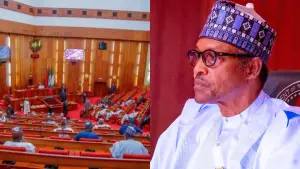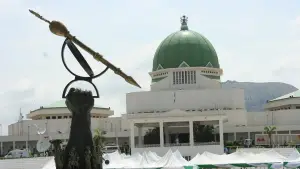Former Nigerian President Muhammadu Buhari died on Sunday at a clinic in London at 4:30 pm. His death was announced by his former media aide, Garba Shehu, through a post on X (formerly Twitter).
Buhari, who served Nigeria both as a military Head of State and later as a two-term civilian president, leaves behind a complex legacy that shaped modern Nigeria. Here are ten significant facts about his life and career:
Early Life and Personal Background
Born on December 17, 1942, in Daura, Katsina State, Buhari's early life was marked by personal challenges. He lost his father at just three years old and was subsequently raised by his elder brother. Despite these hardships, the District Head of Daura ensured his education by enrolling him in school, setting the foundation for his future.
Distinguished Military Career
Buhari received elite military training across three continents—attending prestigious institutions in the United Kingdom, United States, and India. His service included participation in United Nations peacekeeping operations in Congo. During the Nigerian Civil War, he demonstrated remarkable dedication by fighting throughout the conflict without taking leave, earning widespread respect for his courage, endurance, and leadership abilities.
By his mid-30s, Buhari had already achieved significant positions of authority. He served as military governor of the former North-East region, Federal Commissioner for Petroleum Resources, and Chairman of the Nigerian National Oil Corporation (now NNPCL).
Historic Political Achievements
After retiring from military service, Buhari entered politics and made history in 2015 by becoming the first opposition candidate to defeat a sitting president in Nigeria. Despite losing three previous presidential elections, he maintained remarkable public support, consistently securing over 12 million votes in each contest. To date, he remains the only non-Peoples Democratic Party candidate to serve two consecutive presidential terms.
Leadership During the COVID-19 Pandemic
Under Buhari's leadership, Nigeria navigated the COVID-19 pandemic with relative success, exiting the pandemic-induced recession faster than many other nations. As the ECOWAS COVID-19 Champion, he collaborated with international organizations to mitigate the pandemic's impact across West Africa.
Infrastructure Development
Buhari initiated Nigeria's most ambitious infrastructure development program, implementing massive projects in roads, railways, airports, power plants, and ports. His administration utilized innovative financing mechanisms, including Sukuk Bonds, Green Bonds, and the Presidential Infrastructure Development Fund to support these initiatives.
Economic and Energy Sector Contributions
Buhari championed oil exploration beyond the traditional Niger Delta region, culminating in the significant Kolmani oil discovery. This expansion of Nigeria's energy sector represented a strategic diversification of the country's oil production capabilities.
Security Reforms
The late president rebuilt military confidence and advanced internal security through several initiatives. His administration made the largest investment in the armed forces in four decades, reformed the police force, degraded insurgent groups, and significantly improved Nigeria's coastal safety.
Legislative and Social Reforms
Buhari's administration revised several outdated laws, including the Companies and Allied Matters Act (CAMA) and the Police Act. He also introduced Africa's largest social investment program, which included feeding over 10 million school children daily, addressing both immediate needs and long-term social development.
As Nigeria mourns the loss of its former leader, reactions have poured in from across the political spectrum and international community, reflecting the significant impact Buhari had on Nigeria's political landscape and development trajectory.
Stay updated with more developments on this story by following BenriNews on our social media platforms: Facebook, Twitter, LinkedIn, WhatsApp, and Telegram.












